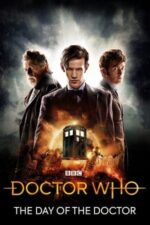Beyond the Battlefield: Exploring War Through Cinema’s Lens
War. It's a word that conjures images of explosions, uniforms, and heroic sacrifice. And while those elements certainly find their place in film – think of the relentless tension of Battle of the Bulge, where Lt. Cappa fights to protect vital supplies against overwhelming odds – war is so much more than just battles and strategy. It’s a societal earthquake, a personal trauma, and a moral minefield. And cinema, at its best, has always been willing to dig deep into those complexities.
What I find fascinating about films tackling this subject isn't necessarily the depiction of combat itself (though that can be incredibly visceral), but how they explore the ripple effects – the human cost extending far beyond the front lines. Take Totto-chan: The Little Girl at the Window, for example. It’s a seemingly gentle film about a young girl attending an unconventional school in wartime Tokyo, but it's profoundly shaped by the anxieties and disruptions of World War II. The school itself becomes a refuge, a space where children can find normalcy and joy amidst chaos – a powerful testament to resilience and the importance of nurturing innocence even during unimaginable hardship.
Then you have films like Hope, which pulls no punches in portraying the devastating impact on military families. It’s not about grand battles; it's about Catherine’s struggle with addiction, her fractured marriage, and the heartbreaking way her daughter is forced to grow up too fast. This film, alongside documentaries like Gaza: Doctors Under Attack – which lays bare the horrific destruction of healthcare infrastructure and the persecution of medical professionals – reminds us that war isn’t a distant event; it's a lived reality with tangible consequences for individuals and communities. The sheer scale of devastation shown in Gaza, where all 36 main hospitals have been damaged or destroyed, is simply staggering.
Even films focusing on seemingly smaller moral dilemmas, like Reaping the Whirlwind, offer profound insights. A young stenographer grappling with whether to draft a letter authorizing an airstrike – that’s not about heroism; it's about complicity and the agonizing weight of responsibility in a system built for war. It forces us to confront uncomfortable questions: What does it mean to be part of something bigger than yourself, even when that “something” demands actions you find morally reprehensible?
Ultimately, films about war aren’t just about recounting historical events; they're about examining the human condition under extraordinary pressure. They challenge us to consider not only the physical destruction but also the emotional scars, the ethical compromises, and the enduring impact on generations. And that, I think, is what makes them so vital – and why we keep returning to them, seeking understanding in a world still too often defined by conflict.
What films about war have you found particularly impactful? I'd love to hear your thoughts!







































